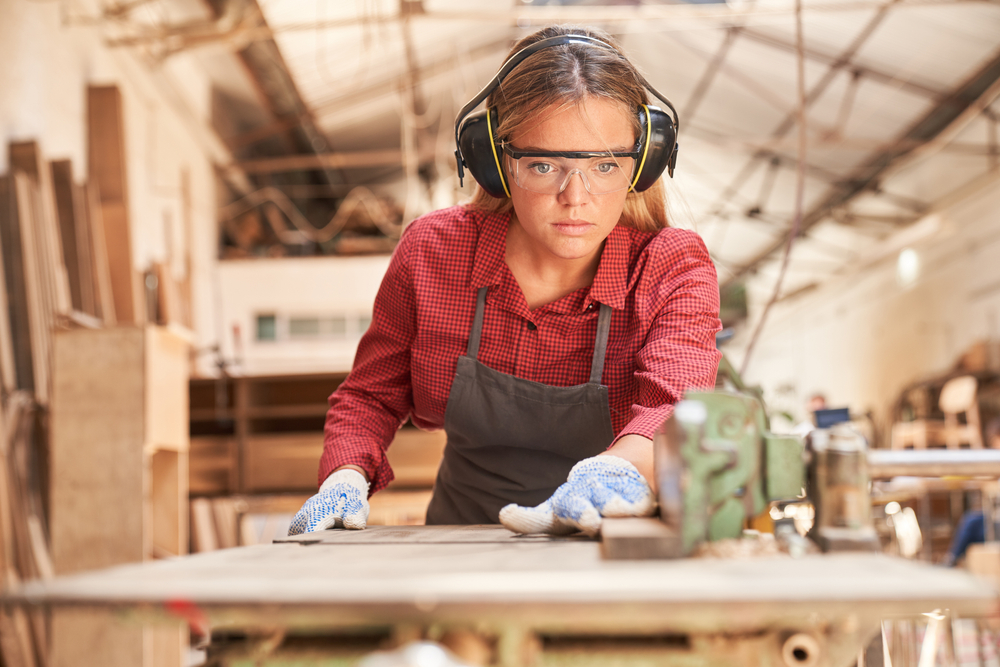
Whether you’re going to concerts, at work, or doing some yard work, hearing protection is indispensable in keeping your ears safe from damaging noise levels. However, you could be left exposed to potential risks if any one of several potential factors interferes with your hearing protection’s effectiveness. In order to understand and effectively maximize the benefits of your ear protection, it’s essential to understand these issues.
Common reasons why hearing protection fails
Even when you observe best practices, unexpected difficulties can occur. You keep away from overly loud settings as much as possible, use earplugs at concerts, and vigilantly use earmuffs at work. Yet, certain variables can still disrupt your hearing protection’s effectiveness. Luckily, you can ensure the protection of your hearing by becoming aware of these common issues and making informed adjustments.
1. Choosing the wrong hearing protection for the situation
Hearing protection isn’t one-size-fits-all, and selecting the wrong type for a given environment can decrease its effectiveness.
There are generally two primary categories of hearing protection:
- Earmuffs: Larger devices that go over the entire ear, resembling headphones.
- Earplugs: Small foam or rubber plugs that tuck tightly into the ear canal.
Each type has its appropriate use case:
- Earplugs are best suited for environments with constant noise levels, including factory floors or airplane cabins.
- In situations like a construction site where noise is irregular and you may need to regularly remove your hearing protection, earmuffs are the more effective choice.
If you’re in a quiet environment and need to temporarily remove your hearing protection, earmuffs are easier to manage. However, earplugs, especially disposable ones, can be easily misplaced, leaving you exposed when noise levels rise again. Selecting the correct hearing protection for your requirements is the first step toward protecting your hearing effectively.
2. Fit and function are affected by anatomy
Some devices will fit better than others depending on the size and shape of the individual’s ears. Standard earplugs and earmuffs are usually designed with average dimensions in mind, but your ear anatomy could require a more individualized solution.
- Smaller ear canals: If you have tight ear canals, standard-sized earplugs may not create an effective seal, decreasing their noise-blocking capabilities.
- Larger ear structures: Oversized ears can make earmuffs uncomfortable, causing gaps in the seal that allow noise to enter.
Poorly fitting hearing protection can result in frustration and a temptation to abandon their use altogether, putting your hearing in danger. If you spend substantial time in noisy settings, think about investing in custom-molded earplugs or professionally fitted earmuffs. These tailored solutions provide optimal comfort and effectiveness, ensuring you remain protected in any situation.
3. Failing to maintain or replace ear protection
Like any piece of equipment, hearing protection devices need maintenance to continue to be effective. Wear and tear, improper cleaning, and missing replacement schedules can all undermine their ability to protect your ears.
Here’s how to take care of your hearing protection:
- Inspect for Damage: Inspect the elastic band on earmuffs frequently. Their ability to efficiently block noise can be jeopardized if the elastic band is loose or stretched.
- Clean Properly: Debris and earwax can build up on your hearing protection over time. Wash them regularly using manufacturer-recommended techniques to ensure cleanliness without damaging the material.
- Replace Cushions: The flexibility of earmuff cushions can diminish over time. Replace them as needed to maintain a tight seal.
Your hearing protection will be less effective and possibly unusable if you ignore these basic maintenance tasks. In order to ensure consistent and effective performance, and to extend their lifespan, it’s crucial to keep these routine maintenance schedules.
The advantage of a hearing specialist
If you’re unsure whether your hearing protection is doing its job, schedule an assessment appointment with us. After checking your devices, we can help you with a customized solution that will work best for you.
Keeping your hearing safe is a commitment that lasts a lifetime and it’s crucial that you do it with the right tools. By dealing with these common challenges, you can confidently safeguard your ears from damaging noise and preserve your hearing for years to come.
[blogcta]
